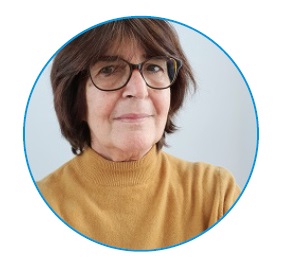Caroline Damour, public health pharmacist: “The focus must go beyond the availability of medicines”
What are the challenges faced by African countries in terms of medicines?
Caroline Damour – The main problem lies in access to affordable and quality medicines. It is partly due to a lack of resources, which does not allow African countries to buy sufficient quantities to meet the needs of their populations. But there is also a systemic aspect characterised by ineffective, poorly structured and largely unregulated supply systems.
 The lack of regulations fosters the development of illicit markets
The lack of regulations fosters the development of illicit markets
The lack of regulations on medicines also fosters the development of illicit markets and even pharmaceutical crime, which takes advantage of the distribution of falsified and substandard medicines. This scourge is increasingly developing, especially in the weakest countries. Networks are very reactive there: for example, they have taken advantage of the impact of Covid-19 on supply problems and urgent and uncontrolled runaway purchases to put on the market falsified medicines (and, firstly, falsified hydroxychloroquine). This difficult time remains conducive to the proliferation of these products. Yet as these substandard and falsified medicines are cheaper, people buy these products and put themselves at risk: the World Health Organization (WHO) estimates that 100,000 people die each year in Africa from the use of counterfeit medicines.
Access to medicines and their quality is therefore a major public health issue, especially as the burden of disease requires an increasing amount of medicines in Africa.
Given this challenge, how to ensure better access to medicines?
Caroline Damour – It is essential to strengthen national stakeholders and their mechanisms so that they themselves can buy the medicines their populations need.
 We should, where possible, avoid taking the place of national stakeholders
We should, where possible, avoid taking the place of national stakeholders
We should, where possible, avoid taking their place via donations of medicines, which are one-off measures and not sustainable in the long term. The products given not only do not always comply with national regulations, this type of support also contributes to disrupting the structure of national systems by overlapping existing supply chains that need to be strengthened.
Could African countries produce the medicines themselves?
Caroline Damour – Today, Africa only produces 3% of the world's pharmaceutical output. It is especially concentrated in about ten African countries, whereas Africa bears 25% of the global burden of disease. The environment in these countries – energy, infrastructure, communication channels… – and the size of their markets are not conducive to the development of a local industry. There have been many failures in this field and a number of national factories in Africa have closed because they failed to comply with international standards applicable to drug manufacturing.
 Covid-19 has demonstrated the crucial role of national pharmaceutical production
Covid-19 has demonstrated the crucial role of national pharmaceutical production
However, the Covid-19 pandemic has shown the limits of globalisation and over-dependence on the outside world, particularly on China and India, in terms of access to raw materials and treatments. Covid-19 has put the whole world in a maximum state of emergency and demonstrated the crucial role of national pharmaceutical production in this race for treatment. This was particularly the case for Africa which imports almost 90% of the medicines consumed. The discussion about industrialisation in Africa has therefore been reactivated. However, strong political commitments by countries and substantial investments will be required for this option to be pursued in the long term.
And what about quality?
Caroline Damour – Beyond procurement or production, the entire chain needs to be secured, from the producer to the user: to know where the products come from, of course, but also to be able to control their quality, determine where they go, ensure they are stored and used under the right conditions. It is this overall mechanism – with regulations and the means to apply them – that will make it possible to build a coherent system to have more secure pharmaceutical markets.
 The entire chain needs to be secured, from the producer to the user
The entire chain needs to be secured, from the producer to the user
However, there are limitations in this field, which stem from the weakness of the regulatory authorities responsible for defining and enforcing the rules on the authorisation of medicines on markets, controls on imports and the practices of pharmaceutical operators. The quality control of medicines should also be made possible in countries through operational laboratories. But these laboratories must themselves have the expertise and capacity to do this, which is not the case today: no French-speaking country in West and Central Africa has a control laboratory with a WHO pre-qualified level.
Can there be a secure market without regional coordination?
Caroline Damour – The regional level is extremely important for establishing common policies, both for regulations and the control of the markets. This in particular helps the weaker countries.
 There is a real awareness at regional level
There is a real awareness at regional level
There is a real awareness at regional level, with the creation of regional markets, which are crucial to the development of production and supplies on this scale. There are also initiatives to strengthen and harmonise the pharmaceutical regulations of various African countries, with the forthcoming project led by the African Union, through NEPAD, to create a single African Medicines Agency: AMA, the treaty for which was adopted in February 2019 and is in the process of being ratified.
This regional coordination is also essential in the fight against illicit markets and trafficking in medicines. It must involve various sectors – health, of course, but also customs, the police and legal stakeholders – as it is necessary to be able to prosecute and punish. In this respect, the MEDISAFE project financed by the European Union and implemented by Expertise France is helping 11 East African countries build their capacities to develop plans to fight against counterfeit medicines on their own.
What is the role of international technical cooperation on these issues?
Caroline Damour – Strengthening health systems above all means supporting countries and building their capacities to do things by themselves. Up to now, the support has very much focused on the supply and availability of medicines, which is essential to the development of healthcare and health systems. For example, through the 5% Initiative, Expertise France is supporting ACAME, an association of medicines purchasing centres in 22 African countries.
 Strengthening health systems above all means supporting countries
Strengthening health systems above all means supporting countries
We now need to also work on regulations and control laboratories to develop more effective governance systems. The focus must therefore go beyond the availability of medicines and support the movement of African countries themselves.
 Caroline Damour is a Doctor of Pharmacy and graduated in Public Health. After starting her career at the Central Hospital Pharmacy of the Paris Public Hospitals, she went on to work in developing countries in Eastern Europe, Asia and Africa, where she worked on a number of issues related to pharmaceutical policies (essential medicines policy, reform and support for pharmaceutical supply systems, regulatory systems and quality assurance) with international donors, such as the World Bank, European Union and United Nations. She joined Expertise France in 2019 as senior expert for projects related to pharmaceutical issues in the agency’s Health Department.
Caroline Damour is a Doctor of Pharmacy and graduated in Public Health. After starting her career at the Central Hospital Pharmacy of the Paris Public Hospitals, she went on to work in developing countries in Eastern Europe, Asia and Africa, where she worked on a number of issues related to pharmaceutical policies (essential medicines policy, reform and support for pharmaceutical supply systems, regulatory systems and quality assurance) with international donors, such as the World Bank, European Union and United Nations. She joined Expertise France in 2019 as senior expert for projects related to pharmaceutical issues in the agency’s Health Department.
![]()
This interview is taken from the thematic report “Availability, accessibility, quality: Three challenges for medicines in Africa”.

